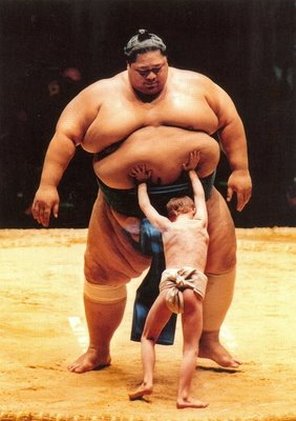Training Philosophy
"If exercise were a medication, it would be considered some sort of wonder drug......"
Some variation of this statement has been repeated so often in recent years that any single origin is hard to trace. Still, the spirit of the message needs to hammered into the consciousness of every student: no [secular] activity has as profound an impact on human well-being as exercise. It is simply as close to a cure-all for the ails of humans as we have readily available.
The benefits obtained from athletic training are too numerous to list, but one particularly interesting area of recent research is the fantastically positive effects of exercise on the brain and cognition. Exercise has been proven to effectively grow brain cells and increase brain mass. Athletic training prevents cognitive decline as we age, and cellular growth in the brain can occur even with a single exercise session! Yes, you can make yourself smarter for that next exam. Study, exercise vigorously, and then study some more (in a different location).
I have cobbled together some of my overall ideas with respect to training based on the available academic research and my own personal experiences. My style closely parallels and draws from writings of Clarence Bass, who likewise keeps a keen eye on the scientific literature.
SPECIFIC POINTS TO CONSIDER
1.) It isn't complicated, but it isn't necessarily easy (especially initially)
2.) Understand the need to progressively overload, but don't take it too far
3.) Embrace intensity
4.) Incorporate both cardio and strength training into your plan
Some variation of this statement has been repeated so often in recent years that any single origin is hard to trace. Still, the spirit of the message needs to hammered into the consciousness of every student: no [secular] activity has as profound an impact on human well-being as exercise. It is simply as close to a cure-all for the ails of humans as we have readily available.
The benefits obtained from athletic training are too numerous to list, but one particularly interesting area of recent research is the fantastically positive effects of exercise on the brain and cognition. Exercise has been proven to effectively grow brain cells and increase brain mass. Athletic training prevents cognitive decline as we age, and cellular growth in the brain can occur even with a single exercise session! Yes, you can make yourself smarter for that next exam. Study, exercise vigorously, and then study some more (in a different location).
I have cobbled together some of my overall ideas with respect to training based on the available academic research and my own personal experiences. My style closely parallels and draws from writings of Clarence Bass, who likewise keeps a keen eye on the scientific literature.
SPECIFIC POINTS TO CONSIDER
1.) It isn't complicated, but it isn't necessarily easy (especially initially)
- Creating a training plan is not rocket science. Create a plan that is workable for your schedule. It generally should not require more than 4-5 hours a week for most people.
- For those just beginning, understand that there are going to be a few awkward moments when you start out. Stay light-hearted and be willing to laugh a little bit.
- Muscle soreness is going to be a reality. Learn quickly to view it positively: you are becoming stronger. Other types of pain, such as knee pain, shoulder pain, etc, are signs of a negative situation. Seek help for this pain and do not attempt to train through it.
- Properly orienting your attitude is essential. Approach your workout as something your are looking forward to not something you must do or openly dread. Choosing activities which suit you can help here, as can some simple additives like great music.
2.) Understand the need to progressively overload, but don't take it too far
- The human body is wonderfully adaptive. Exercises that were once difficult become routine. To build or even maintain fitness, we need to be regularly raising the bar in terms of difficulty. This could mean increasing a running pace, spending more time on a rowing session, or incrementally adding to the weight used on a barbell. If you perform the same exercise with the same level of intensity for a long period of time, the benefits will begin to taper off.
- That said, understand that if exercise is overdone, all positive gains will likewise cease. Overtraining is quite detrimental, but it can be avoided by being reasonable and allowing considerable recovery time between workouts (such as five days to one week).
3.) Embrace intensity
- Scientific research has conclusively shown that short bursts of intense exercise can be as effective, and in some areas more effective, than the old "slow and steady" approach. Amazingly, this is true whether one is talking about cardiovascular training or weight training.
- "High intensity interval training" or H.I.I.T., has been shown to be a remarkably efficient way to train cardio. Engaging in workout regimes like the "Tabata Protocol," a person could effectively maintain tip-top cardiovascular fitness with as little as two 15-minute workouts per week. What is the catch? Well, such intensity may be too draining even for professional athletes. Still, even by moderately increasing intensity and doing exercise with bursts of effort, fitness can be achieved with great efficiency and effectiveness.
- "High Intensity Training" or H.I.T., is the application of the intensity principle to weight training. For example, with enough intensity, a person could do a single set of seven repetitions on a bench press machine once a week and would see her strength in this area increasing appreciably over time. Doing this once a week allows plenty of time for muscle recovery. Your intensity level is sufficient if you are just barely able to complete the last repetition of a predetermined number (something from 5-12 works well).
4.) Incorporate both cardio and strength training into your plan
- Genuine overall fitness is going to require that you be well-rounded in your training. The natural inclinations of human nature and human physique make some folks more inclined to want to run or do aerobics and others more inclined to lift pieces of steel. These inclinations sometimes, but not always, fall along gender lines. Being strong in one area and mediocre or weak in another is analogous to being great at speaking a foreign language, but not being able to read a word.
- I believe that there are generally more people who engage in cardio and neglect resistance training than vice-versa. This is certainly the case with many of my friends who are marathon runners and triathletes. I often hear something like "I don't want to get too bulky...." which tends to underestimate [almost humorously] how difficult it is to pack on excessive muscle mass. Humans lose a great deal of muscle mass as they age, which can lead to putting on fat. Weight training is essential simply to maintain a healthy muscle mass. Likewise, recent research has show the remarkable benefits it offers by increasing bone density.
Don't worry. Regular weight training is not going to accidentally turn you into a super-hulk like Wendy here, who was born with two sets of each muscle.


